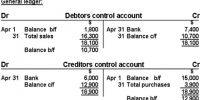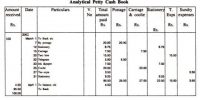Difference between Revenue reserve and Capital reserve
The reserve which is formed out of the capital earnings is known as capital reserve. It is formed out of the earnings of several particular transactions of capital nature. Revenue reserve is formed out of the revenue turnover earned in the usual course of the business. It refers to the undistributed revenue earnings.
Revenue reserve
- Meaning: Revenue Reserve refers to the sum of money retained in business, so as to meet out future contingencies.
- Source of creation: Revenue reserve is created out of revenue profits, which arise out of the normal business activities and are otherwise available for dividend distribution.
- Purpose: Main objective of this reserve creation is to written off the unforeseen losses. Revenue reserve is created to build up the financial position, to meet unforeseen contingencies or for some specific purposes.
- Usage: A specific revenue reserve can be utilized only for the earmarked purpose while a general reserve can be utilized for any purpose including distribution of dividend.
Capital reserve
- Meaning: Capital Reserve alludes to a fund, that is created to finance long-term project or write off capital expenses.
- Source of creation: Capital reserve is created mainly out of capital profit, which does not arise from the normal business activities and are not available for distribution as dividend.
- Purpose: Capital reserve is created for compliance of legal requirements or accounting practices. Main objective of this reserve creation is to written off of capital losses.
- Usage: Capital reserve can be utilized for specific purposes as provided in the law in force, e.g. to write off capital losses or issue of bonus shares.












